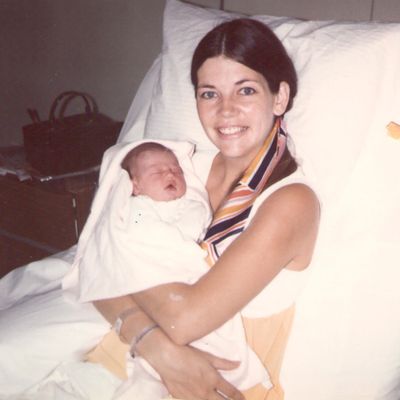
If you want a good indicator of how well Elizabeth Warren’s presidential campaign has been doing lately, consider the controversy that’s blown up in the past few days over a story she’s been telling for years. It centers on Warren’s claim, part of her account of a hardscrabble early life, that after one year working as a public-school teacher in New Jersey, she was “shown the door” by the school’s principal because she was “visibly pregnant” with her first child. Critics have noted that school records and an old interview raise doubts about the accuracy of her account.
The story gained traction on Twitter last week, after Jacobin’s Meagan Day highlighted a 2007 interview Warren gave at the University of California, Berkeley, in which she said she abandoned her career as a public-school teacher after realizing that the required graduate-school classes weren’t “going to work out” for her, making no mention of her pregnancy.
On Monday, the Washington Free Beacon ran with a solemn examination of school-board records from 1971 indicating that Warren was offered a contract to teach for another year, and instead resigned. The story quickly spread through right-wing media circles, with lots of language about Warren being “caught lying.”
Warren pushed back in an interview with CBS News published late on Monday, highlighting a central problem with the accusation: She does not appear to have said at any point that she was formally “fired:”
Warren told CBS News she stands by her characterization of getting “shown the door” because of her pregnancy and called it an “accurate description.”
“When someone calls you in and says the job that you’ve been hired for for the next year is no longer yours. ‘We’re giving it to someone else,’ I think that’s being shown the door,” Warren told CBS News.
And Warren maintains the school-board records have nothing to do with the informal dismissal administered by the school principal:
Warren also told CBS News that she was, in fact, officially offered the job for the following year as the school board minutes indicate. “In April of that year, my contract was renewed to teach again for the next year,” Warren said. She also said she had been hiding her pregnancy from the school.
“I was pregnant, but nobody knew it. And then a couple of months later when I was six months pregnant and it was pretty obvious, the principal called me in, wished me luck, and said he was going to hire someone else for the job,” Warren said.
Warren’s response is satisfying at a factual level. But there’s a bigger point here that’s worth highlighting: An essential element of informal discrimination — of the sort Warren seems to have faced — is to expect the victim to take the crucial step to avoid unpleasant confrontations. It’s not unlike the strategy of encouraging undocumented immigrants to “self-deport.”
And CBS actually turned up evidence that, in 1971, Warren was facing precisely the kind of culture of discrimination that made the story of her dismissal an appropriate point to hit in her stump speech:
Two retired teachers who worked at Riverdale Elementary for over 30 years, including the year Warren was there, told CBS News that they don’t remember anyone being explicitly fired due to pregnancy during their time at the school. But Trudy Randall and Sharon Ercalano each said that a non-tenured, pregnant employee like Warren would have had little job security at Riverdale in 1971, seven years before the Pregnancy Discrimination Act was passed.
“The rule was at five months you had to leave when you were pregnant. Now, if you didn’t tell anybody you were pregnant, and they didn’t know, you could fudge it and try to stay on a little bit longer,” Randall said. “But they kind of wanted you out if you were pregnant.”
As the school board minutes show, no member of the Riverdale school board at the time was a woman. A full year after Warren’s dismissal, the Associated Press wrote that a recent New Jersey State Division of Civil Rights decision meant that “pregnant teachers can no longer be automatically forced out of New Jersey classrooms.”
The story will probably fade, though on the margins you might see the right trying to link it to the “Pocahontas” narrative (based on Warren’s self-identification as a Native American in an academic directory a long time ago, and her mishandling of the issue just before her presidential campaign began). And for conservatives and swing voters bothered by the Native American business, a story suggesting that Warren embellished a tale of workplace discrimination could serve as another example of her playing identity politics without merit. For progressives with doubts about Warren, it could stir a sense that she is a Harvard elitist (and former Republican!) donning the clothes of teachers and other working mothers, while also borrowing Bernie’s populist thunder. But, again, this would only be at the margins. At any top-line level, this story is nothing for the Warren campaign to worry about.
There’s even potential it could have an upside for her: Don’t be surprised if Warren gets some sympathy from women — including Republicans and independents — who have similarly been expected to self-defenestrate at work and then keep their mouths shut.






























